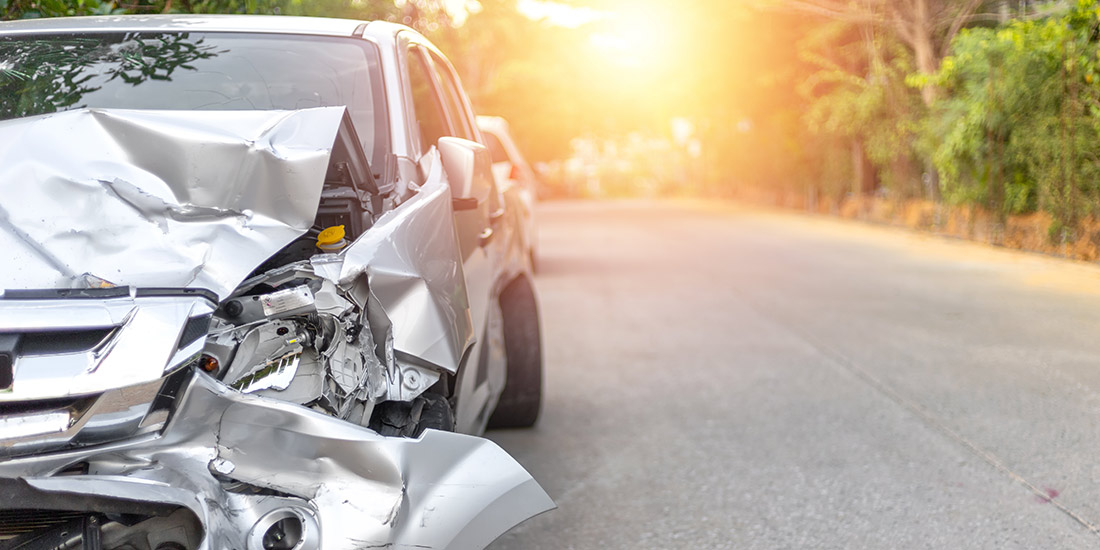Over six million car wrecks occur each year in the United States. Of those six million, one-third (333,333) result in injuries to the driver or passengers. Of those car wrecks, two out of every ten accidents lead to fatal injuries.
If involved in a car accident, you must protect your and your family’s interests. Here is a list of things you should do if involved in a car wreck:
- STOP. Always stop at the scene. Never flee or drive away.
- PROTECT THE SCENE AND OTHERS. Set up flares and keep your flashers on. If it is dark and your lights don’t work, you should have a flashlight to keep you safe while you wait in your disabled car or by the side of the road.
- CALL THE POLICE. Even if you think nobody is seriously injured, always call the police. Some insurance companies deny valid claims when a police report is not generated. This is true even when the claim is only for damage to your vehicle.
- MAKE AN ACCURATE RECORD. When the police arrive, make sure you tell the investigating officer(s) exactly what happened, to the best of your ability. Do not speculate, guess or misstate any of the facts. If you do not know the answer to the police officer’s questions, tell the officer, “I don’t know.” If you are asked if you are injured and you are not sure, say you are not sure. Many times, pain from injuries do not show up until hours, even days later. You should also make sure statements made by other persons involved in the accident are accurate as well. Finally, do not move the vehicles. Vehicles involved in accidents should remain where they are, unless they interfere with traffic.
- TAKE PICTURES. If you happen to have a camera in your vehicle, or a cell phone equipped with a camera, you should first take numerous pictures of the scene from all angles. Make sure to take pictures of the scene before and after the vehicles have been moved. Afterward, you should take pictures of the all vehicles involved, whether there is visible damage to the cars or not. If you have visible injuries, you should photograph them as well.
- EXCHANGE INFORMATION. Normally, the police officer will gather all the information of everyone involved. However, if the police do not respond to the accident, you should obtain the name, addresses and telephone numbers of all persons involved in the accident. This includes all drivers, passengers, and witnesses. You should also obtain information about each driver’s insurance by asking to see the insurance card for all vehicles involved in the accident. Take a picture of each person’s insurance card. If there are witnesses, you should get information from them as well so that you or your attorney can contact them in the future.
- REPORT THE ACCIDENT TO YOUR CAR INSURANCE COMPANY. Notify your car insurance company as soon as possible. Many car insurance policies require you to report all car wrecks you are involved in, regardless of who was at fault.
- SEEK MEDICAL ATTENTION AS SOON AS POSSIBLE. Many times, injuries caused by car accidents are not immediately apparent. Most people report feeling the most pain a day or two after the car wreck. Even in car wrecks involving minor impact (fender benders), serious and sometimes permanent injury can occur to your spine. If you lost consciousness or were dazed for even a short period of time following the collision, you may have suffered a concussion or closed head injury. This can lead to permanent brain damage if left untreated.
- KEEP A PERSONAL RECORD. Keep all documents and information related to the car wreck in a folder. This information should include a claim number, the claim’s adjuster who is handling the claim, names and phone numbers of all contacts, receipts for a rental car and other expenses incurred as a result of the accident. If you end up needing an attorney, having this information readily available will greatly expedite the legal process.
- PROTECT YOUR RIGHTS. The safest thing to do after a car wreck is to consult an attorney. Your attorney can quickly determine if you even need legal representation. Personal injury attorneys work on a contingency fee basis. This means there is no legal fee unless the attorney recovers compensation for your injuries. So, simply meeting with the attorney to discuss your options will not cost you any money. If you do need a personal injury attorney, your attorney can protect your rights, make sure valuable evidence is not destroyed, and prevent you from signing documents that may prevent you from recovering the compensation you are owed.
